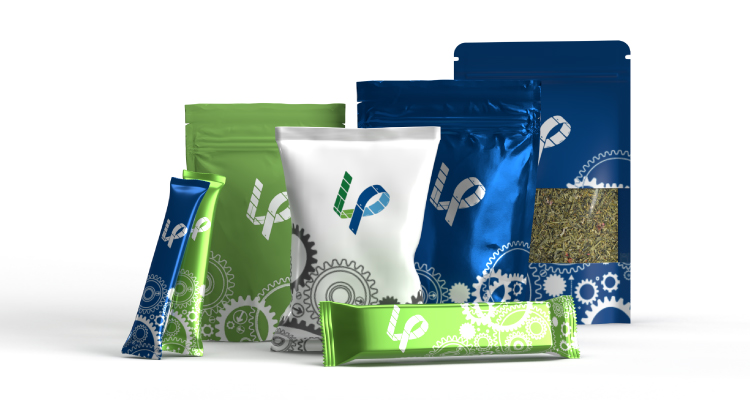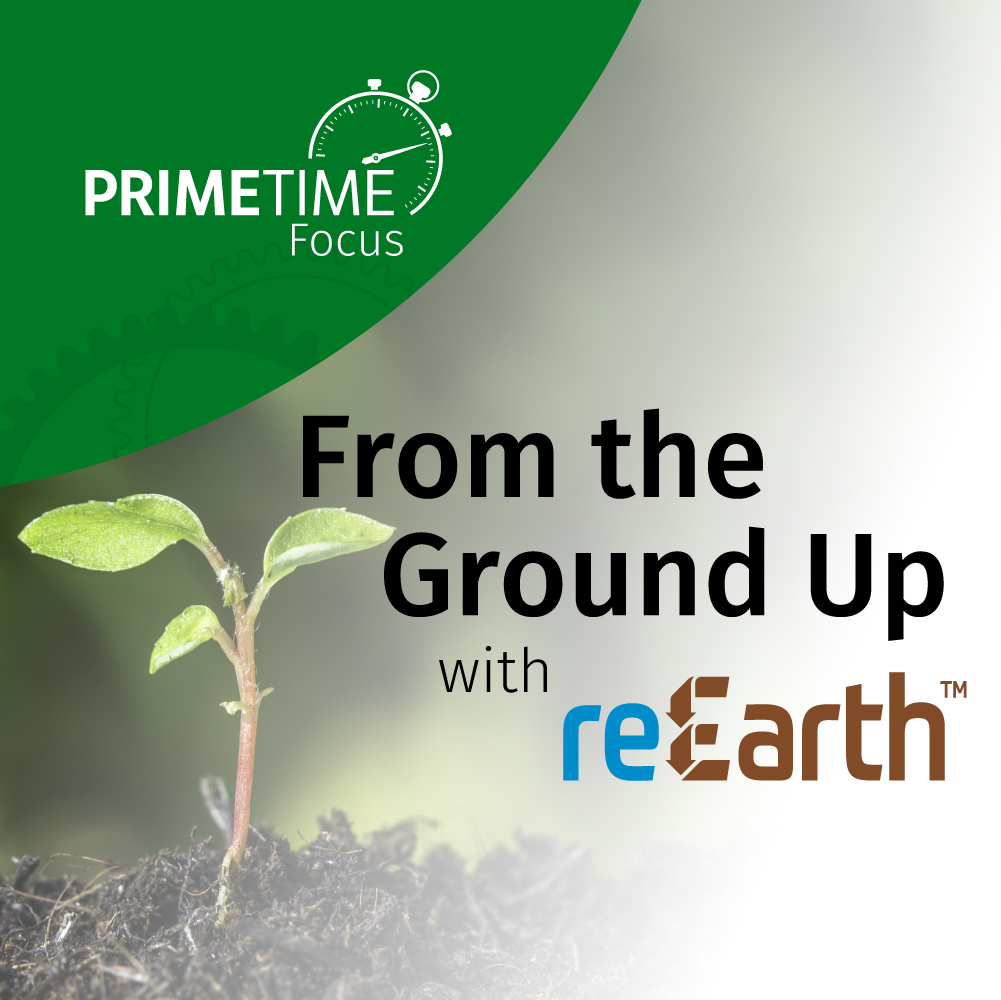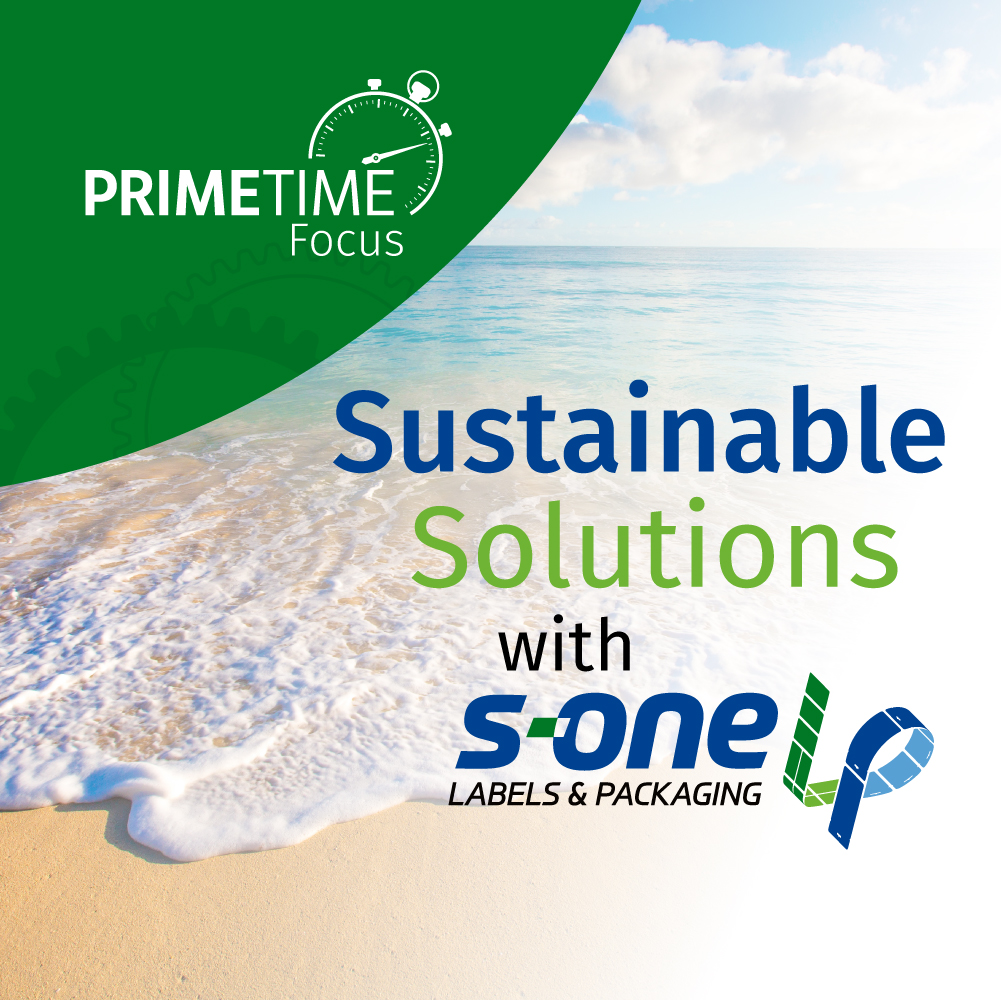S-OneLP Sustainability Resource Guide
Your Guide to Earth-Friendly Packaging
S-One Labels & Packaging is committed to helping the industry develop more energy-efficient materials and processes for labeling and packaging manufacturers to improve sustainability across the supply chain.
We've launched this guide as a way to educate our customers on environmental requirements, how and where to responsibly dispose of different kinds of packaging, and how to incorporate sustainable features at the early stages of packaging design.
ReEarth films earn USDA BioPreferred Certification
Five of our groundbreaking ReEarth compostable films have earned BioPreferred certification from the US Department of Agriculture (USDA) and can display the USDA Certified Biobased Product label.
Additionally, a fully formed ReEarth pouch has met ASTM D6400 testing for municipal or industrial composting.

"Composting Facilities in the United States" map and data provided by GreenBlue and the Sustainable Packaging Coalition
ReEarth Frequently Asked Questions
S-OneLP offers ReEarth as part of its environmentally friendly packaging solutions. Rigorous compostability testing for real-life uses is a strong proof-of-performance for ReEarth 3.4 mil Silver Compostable Pouch Web REE34MSUP and ReEarth 2.2 mil Metallized Compostable Snack Web. Our 2.2 mil Metallized Compostable Snack Web, REE22MSW sustainable films, are TUV Certified for Home and Industrial composting. Also, an HP Indigo printed and e-Beam surface protected Stand Up Pouch made from REE34MSUP was TUV OK compost HOME and TUV OK compost INDUSTRIAL certified.
TUV OK compost HOME certification guarantees complete compostability even in a garden compost pile, which uses a lower temperature and slower-paced process than industrial composting. Products featuring the OK compost INDUSTRIAL label are guaranteed as compostable in a commercial industrial composting facility.
Additionally, REE34MSUP and REE22MSW sustainable films have passed ASTM D6400 and EN13432 testing, globally recognized biodegradability test standards.
All ReEarth laminated films are made from commercially or home compostable components. In order for a laminated structure to be called compostable, the final structure must be tested and pass all guidelines of ASTM D6400. ReEarth 3.4 mil Clear Film REE34CSUP is made from those components, and the 2.2 mil Metallized Compostable Snack Web REE22MSW and ReEarth 3.4 mil Silver Compostable Pouch Web REE34MSUP have been TUV certified for both home and industrial composting.
All ReEarth laminated films are made from commercially compostable components, but to call a laminated structure as compostable, it must be tested and pass all aspects of ASTM D6400.
Our 3.4 mil silver stand-up pouch film (REE34MSUP) passed ASTM D6400 testing, so we can call that structure compostable. Further, thinner versions of this film are also considered compostable since they use the same components, only fewer of them. According to ASTM, thinner ReEarth films should be equivalent in meeting the ASTM standards.
Independent laboratories test packaging to ASTM standards for compostability. If a package passes the tests, it can be called compostable; however, ASTM is not the same as third-party certification.
Organizations such as TUV take the ASTM test data, validate the results, and provide independent third-party certification of those products.
All ReEarth films have some percentage of bio-based content. The components used in manufacturing ReEarth prelaminated films are either BPI certified or have passed ASTM testing as commercially compostable materials.
S-OneLP has five ReEarth film constructions that are certified by the USDA for their bio-based content. These films were tested for the percentage of plant-based biocarbon that is typically made from renewable materials, such as cellulose, corn, or other bio-based materials. This ranges from 48 percent bio-based content to 92 percent.
S-OneLP has chosen suppliers with Good Manufacturing Process certifications for food safety and films that meet FDA standards. The raw materials that make the ReEarth pouch construction is BPI certified for industrial composting and were selected because they allow for the quickest industrial compostability.
Further, S-OneLP sources raw materials in quantities that maximize yield and minimize waste. The films we choose are the thinnest available in order to minimize natural resource consumption and optimize compostability without sacrificing performance.
Although the films we provide to converting partners are warranted for six months, actual shelf life with contents inside the package varies depending on factors that include package contents and package environments, like temperature and humidity. Other factors that impact shelf life are transportation and storage.
S-OneLP always recommends that brands perform shelf stability testing on their packaged products in the conditions the product is anticipated to be subject to, before going to market.
S-OneLP cannot definitively recommend or disqualify contents that go into ReEarth packages, but it is safe to say that dry contents are more likely to pass shelf stability testing than moist contents or liquids will. These films are meant to decompose under industrial conditions, and to do so requires conditions that include air, elevated temperature, moisture, and microbes.
Certified ReEarth packages made from our sustainable films of ReEarth 3.4 mil Silver Compostable Pouch Web-REE34MSUP and 2.2 mil Metallized Compostable Snack Web REE22MSW will compost in a maximum of 84 days in industrial conditions and in less than 180 days under home compost conditions.
ReEarth sustainable product packaging is compostable. The US has over 80 industrial composting facilities that accept packaging bioplastics like ReEarth sustainable films. The interactive map above provided by the Sustainable Packaging Coalition shows the industrial composting facilities in the US so that you can find a facility closest to you. Home composting can occur in a home compost bin or a Lomi™ tabletop composter. A selection of ReEarth eco-friendly flexible packaging is Lomi™ Approved. Although eco-friendly compostable flexible packaging will biodegrade in an open environment, it will not do this as quickly as when properly disposed of under composting conditions where microbes digest the packaging more efficiently.
Yes! All ReEarth films are made from commercial and home compostable components but to be called Home Compostable the complete structure must be tested and certified. ReEarth 2.2 mil and 3.4 mil metallized films (REE22MSW and REE34MSUP) and a printed pouch made from REE34MSUP, passed testing and are certified by TUV for home compostability. Because every package printed and formed from our ReEarth films will be different than the one we submitted for testing, to call your pouch home compostable, your printed and formed pouch must be tested and certified.
No. It is not recommended to mix compostable materials with curbside recycling. If the waste stream is mixed, the recyclable materials could be considered contaminated, and some, or all of it, would end up in landfill. The waste bin is preferred as the last resort as these materials will break down quicker than comparable single-use plastics.
The ReEarth pouches are made from Earth-digestible materials, so it will eventually compost over time in non-commercial conditions. However, it’s hard to say how long it would take to break down fully. In elevated temperatures and aerobic conditions of industrial composting facilities, it takes a maximum of 84 days.
Yes, ReEarth 3.4 mil Silver Compostable Pouch Web REE34MSUP and 2.2 mil Metallized Compostable Snack Web, REE22MSW sustainable films are Lomi™ approved. S-OneLP’s packing technology and its responsibly sourced materials make this process possible.
With a Lomiᵀᴹ approved package, one places the empty package into the Lomiᵀᴹ countertop composter together with food scraps. This process will turn the items into dirt.
Yes. ReEarth 3.3 mil Clear Bio-Based Pouch Web REE33CSUP (48% bio-based) and 3.4 mil Silver Compostable Pouch Web REE34MSUP (49% bio-based) are listed on the USDA’s BioPreferred Catalog of sustainable films. S-OneLP uses responsibly sourced materials as part of its packing technology. Visit biopreferred.gov. Then, type ReEarth in the search bar to view ReEarth bio-based flexible packaging solutions.
ReTreve Frequently Asked Questions
ReTreve is the recyclable family of films made up of all polyethylene (PE) monoweb coextruded materials. These flexible packaging films meet the Sustainable Packaging Coalition guidelines for store drop-off recycling through the How2Recycle program. The base films are also Trex certified*, meaning at the end of its life, ReTreve packaging can be turned into composite decking and rails.
This breakthrough material makes it easy for consumers to dispose of flexible packages and prevents the packaging from ending up in landfill.
ReTreve recyclable films deliver high clarity or opacity, excellent heat seal strength, and high-performance moisture and oxygen barriers. These films come in 4 mil and 4.5 mil clear and white pouch films, 3.5 mil LLDPE sealant films, and 90-gauge clear MDO reverse print films, all of which are certified for store drop-off.
*Any final pouch constructions still need to be approved from Trex, which does so at no cost.
Yes, ReTreve films are certified for store drop-off recycling through Sustainable Packaging Coalition’s How2Recycle and Trex NexTrex programs. Consumers can simply take their ReTreve recyclable flexible packages to a local participating retail location to recycle along with any plastic shopping bags. Most major grocery chains have drop-off collection bins at the front of the store for these PE films.
The materials collected through store drop-off are recycled and given new life in a variety of applications, the most common being plastic shopping bags and wood-alternative lumber.
ReTreve film constructions are made primarily from a single recyclable plastic, or a monolayer, whereas Classic films typically are made from two or more different plastics, making them difficult to recycle. ReEarth is our line of compostable films.
No. It is best not to put pouches or flexible packaging in your blue bin as it may get sorted out and put in a landfill, even though it's recyclable! The best option for disposing of ReTreve pouches is to use the store drop-off program.
Flexible packaging converters have found success with the ReTreve line in applications including bar wrap and flow wrap, snack webs, pouches, and stand-up pouches. Some applications include powders, granolas, confections, and other dried goods. It is recommended to avoid liquids and oils in ReTreve packages.
S-OneLP cannot definitively recommend or disqualify contents that go into ReTreve packages. Fitness for use must be determined by the end user.
How2Recyle is a program from the Sustainable Packaging Coalition, of which S-OneLP are members. How2Recycle is a standardized labeling system that clearly communicates recycling instructions to the public.
To carry the logo, materials and constructions must be certified from the How2Recycle program for eligibility. S-OneLP’s ReTreve family of materials is approved for this designation.
Materials collected through store drop-off are recycled and given new life in a variety of applications, the most common being plastic shopping bags and wood-alternative lumber.
Trex is a company that takes much of the material dropped off at stores and turns it into decking and railings. Trex has its own recycling program, called NexTrex.
Much like How2Recyle, to qualify for the certified NexTrex designation, product packaging must first be tested to ensure that it meets the criteria for use in the Trex manufacturing process. Trex does not require memberships or charge fees.
Once packaging is validated by Trex, a Certification of Acceptance will be issued to the brand owner and the brand will be authorized to use the NexTrex Recycled Packaging Label.
ReTreve now Accepted for
Store Drop-Off Recycling
Consumers can take packages made with ReTreve to their local participating retail location to recycle along with any plastic shopping bags.
Major Brands Target Bio-Based Solutions like ReEarth
Now is the time for the label and packaging industry to meet the demand from major brands and emerging players alike as they achieve their environmental goals.

.jpg)




